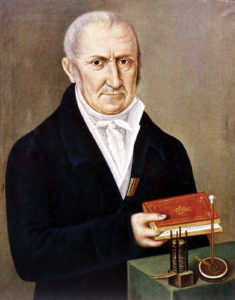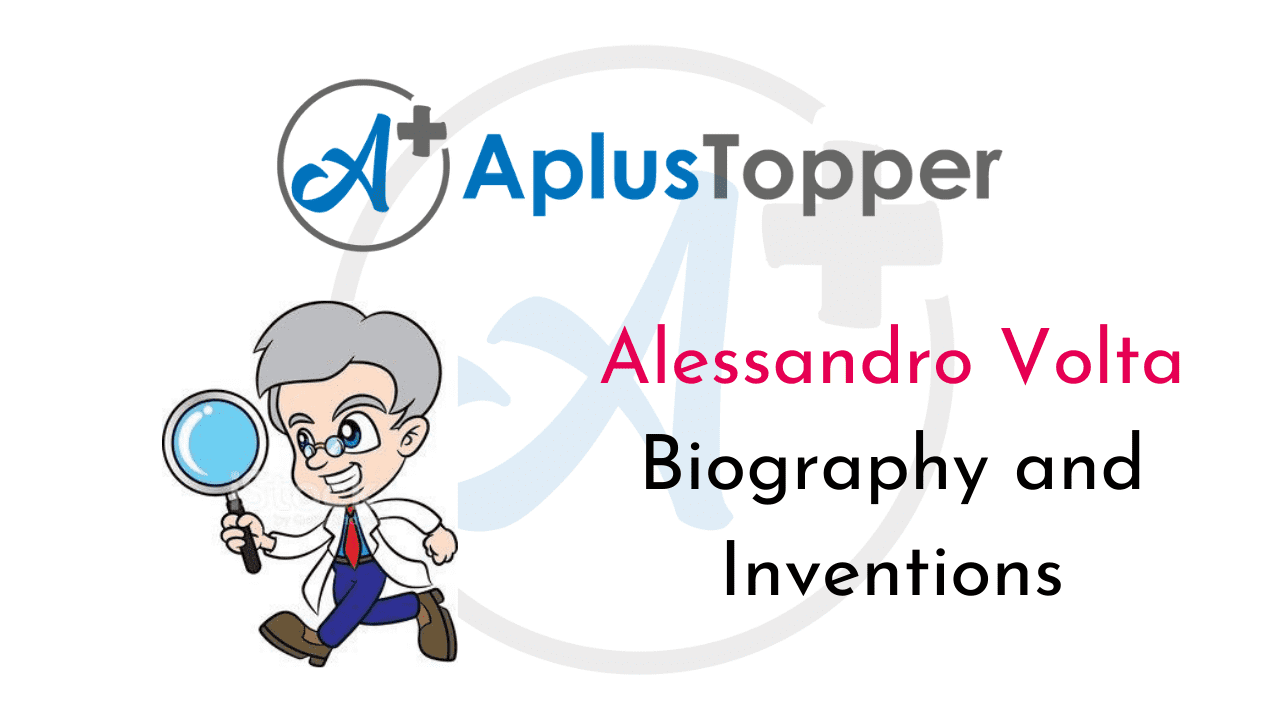Alessandro Volta Biography: Alessandro Volta is one of the most famous Italian physicists who is highly regarded for his invention of the electric cell as well as the 1777 discovery of methane. Volta was raised in a strict Catholic family. He got his early education from a Jesuit school. He was adored by his teachers who thought Volta had all the abilities to become a good Jesuit priest.
A short Biography on world Famous Scientists and Their Inventions.

Alessandro Volta Biography, Inventions, Education, Awards and Facts
Volta was very keen about study -mg electricity which was in its earliest stages at the time. He neutralized. This effect could be transformed by some external source which later changes the relative configuration of the particles. Volta believed that in such an electrically unstable state, the body gets electrically charged.
With this rather weak concept of an electrically charged body, Volta experimented extensively to study electrical induction. He was successful in creating some devices that were able to store electric charge. Subsequently, he gained fame and received grants to visit other countries. He also saw other famous scientists around this time. Volta accepted a teaching job at the University of Pavia where he stayed for about forty years.
Influenced by the efforts of Dc Saussure, Volta developed an interest in atmospheric electricity. He made certain modifications to the electrical instruments made by the Swiss geologist, making them more refined and precise. He came up with methods to measure the so-called “electrical tension ”, later named as the volt.
Volta modified another instrument called the eudiometer, which measured the volume and composition of gases. He was successful in finding out that ordinary air contains about 21% of oxygen. The modified version of the instrument also helped Lavoisier on his legendary work regarding the composition of water. Volta found out that the inflammable gas which creates bubbles in marshes was methane, which is now’ used as a fuel.
Volta initially rejected the Galvani’s idea of animal electricity. When he carried out the experiment himself, he was amazed that the same effect, momentary electric current, which was discovered by Galvani, can be achieved using metals and not dead frogs. Volta made it clear that electric currents could be generated by appropriately connecting metals or wires. Using zinc and copper wires and saline solutions, Volta successfully construced the first electric battery, widely considered to be one of the greatest and most important breakthroughs in the history of science and mankind.
Alessandro Volta retired in 1819 to his estate in Camnago, Lombardy, Italy (now called “Camnago Volta”). He died on March 5, 1827 at the age of 82.
